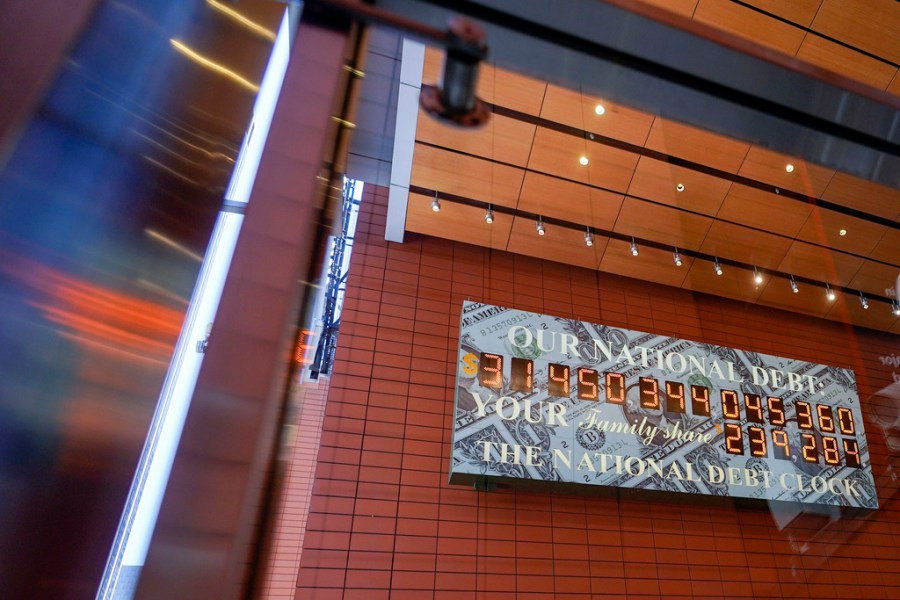
When Republican lawmakers check in with the small businesses in their districts during the Christmas recess, they will likely hear one overriding message: Pass tax cuts now. According to Job Creators Network’s new national poll, small businesses support extending the 2017 Tax Cuts and Jobs Act, which took effect in 2018 and expires next year, by a 5-to-1 margin.
These tax cuts have been a lifeline for small businesses nationwide that have dealt with four years of challenges, from onerous COVID-19 mandates to historic inflation and burdensome labor and environmental regulations. Among other things, they allow small businesses to write off 20 percent of their income and accelerate expensing.
One major roadblock to quickly extending these tax cuts and giving small businesses the certainty they deserve is the insistence by some Republican lawmakers that tax legislation be revenue-neutral.
“You are not getting tax cuts this next year without corresponding, significant spending cuts that will reduce deficits,” says Rep. Chip Roy (R-Texas), claiming it’s “a hill I will die on.” House Budget Committee Chair Jodey Arrington (R-Texas) also says tax cuts should be revenue-neutral.
In hopes that this fiscal issue will scuttle tax cuts, Democrats and activist groups are parroting the Congressional Budget Office’s (CBO) estimate that an extension will cost nearly $4.6 trillion.
But we’ve seen this movie before. The Congressional Budget Office also claimed that the original Tax Cuts and Jobs Act was supposed to cost nearly $2 trillion. What happened in reality? Inflation-adjusted federal tax revenues (not including tariffs) have significantly grown since it passed. Tax collections for fiscal 2024 were half a trillion dollars higher than CBO had projected without the tax cut. Oops!
Official cost estimates were wrong then, and they’re wrong now. Budget scorekeepers who have never worked on Main Street fail to account for how tax cuts boost economic growth, hiring and wages, which increase tax revenues. As President John F. Kennedy put it in 1963, “Reducing taxes is the best way open to us to increase revenues.”
The deficit driver is not tax cuts — it’s reckless spending. Since 2017, federal spending has ballooned from $4 trillion annually to nearly $7 trillion due to reckless and inflationary spending by then-Speaker Nancy Pelosi’s (D-Calif.) Congress and the Biden administration.
If legislators can merely return spending to its pre-COVID baseline, the nation can eliminate the deficit. That’s why these Republicans are right to call for spending cuts but wrong to say they must equal CBO’s faulty projection on the cost of tax cuts.
Repealing the Inflation Reduction Act’s clean energy provisions, including the regressive $7,500 payouts for those who purchase electric cars, can save $622 billion. Republicans can also claw back more than $100 billion in unspent COVID-19 relief funds.
These savings would cover the $684 billion that CBO estimates it would cost to extend the 20 percent small business deduction. In fact, these funds would create room to expand this small business deduction further to ensure that Main Street keeps tax parity and competitiveness with corporations.
Ending expanded ObamaCare subsidies for middle-class folks earning more than 400 percent of the federal poverty line would save $335 billion, per the CBO. Popular and fair work requirements for welfare would save another $135 billion.
These cuts would essentially pay for extending vital immediate expensing for capital investments and research and development, which are projected to cost $378 billion and $153 billion, respectively.
The “Department of Government Efficiency” will undoubtedly come up with innovative ways to pay for other key provisions in the tax bill. The bloated military-industrial complex should not be off the table.
Will these spending cuts cover the full cost of the tax-cut extension? Likely not. But history and logic show they won’t have to go that far for the tax cuts to be revenue-neutral.
Most importantly, tax cuts will reward small businesses for making it through the bad years of the Biden administration, encourage new entrepreneurs to grow the economy and live the American Dream, and revitalize beaten-down communities throughout the country.
Alfredo Ortiz is CEO of Job Creators Network, author of “The Real Race Revolutionaries,” and co-host of the Main Street Matters podcast.












